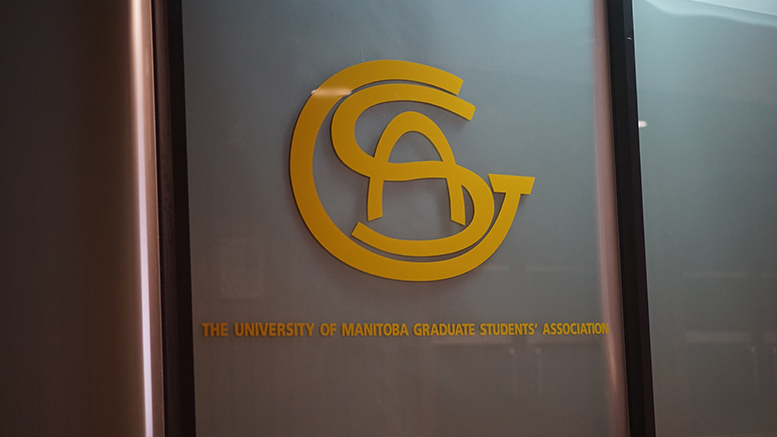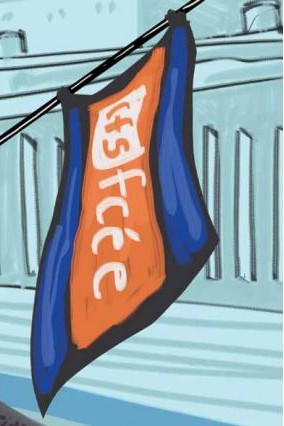The Canadian Federation of Students-Manitoba had a particularly tense meeting Feb. 10, with a motion on the agenda to remove chairperson Alanna Makinson.
The motion was brought forward by CFS-Manitoba Local 96, the University of Manitoba Graduate Students’ Association (GSA), and alleged that Makinson had “failed to consult with executive members with respect to her activities in relation to the operations of the Manitoba CFS”, according to a copy of the meeting’s agenda obtained by the Manitoban.
The motion also claimed that Makinson had failed to communicate in the official languages of Canada, violating National CFS Bylaw 13; had not met with all member locals on their campuses, “which resulted in a lack of participations and disconnect between member locals within Manitoba CFS”; and that issues of communication, meeting timelines and deliverables, and violations of the bylaws “were brought forward to the attention of the chairperson by phone, email and at provincial executive meetings without resolution.”
The motion failed, with only two CFS member locals voting in favour of the motion, UMGSA and the Association etudiante du College universitaire de Saint-Boniface (AECUSB).
Makinson said she was “taken aback” when she first saw the motion.
“There were many, many opportunities built in through our democratic structures, the provincial executive, to direct any concerns that they might have. Unfortunately, those forums were not used to raise all of these concerns,” said Makinson.
Despite the uneasiness of the situation, Makinson felt that the meeting provided a good opportunity to air any concerns that locals might have and address them constructively. “I think we’ve been able to identify that there are some concerns from locals, which weren’t directly communicated in the past,” she said.
“We’re going to do our best to alleviate and address those concerns.”
When asked to comment on the accusations made in the motion, Makinson stressed that “there are a number of other ways that members can find out what’s going on in the organization in an formal and informal way,” Makinson said.
However, Peter Nawrot, vice-president (academic) of UMGSA said the association holds steadfast to the clauses presented in the motion.
“It’s really about being responsible with students’ money. If we’re going to be paying the amount that we do — that’s student’s money,” said Nawrot.
“We want to hold any organization that we give money to accountable.”
Nawrot explained that at the meeting UMGSA found that the chairperson had been active in some locals, but not as active with UMGSA.
“In some locals, the chairperson has been very active. [ . . . ] I’m glad for that, but we just found [ . . . ] that we were not at all getting any support from the provincial office,” he said.
The University of Manitoba Students’ Union (UMSU) was one of the three locals voting against the motion.
“There were no substantial grounds and we felt an action like that would do more harm than good for the stability of the student movement in Manitoba,” said UMSU president Heather Laube.
“We should be spending our time working for students, not causing petty intrigues.”
UMGSA president Meaghan Labine felt that the motion was not “petty,” but a justified attempt to bring up serious concerns that they had with the organization that she says UMGSA had tried to resolve on numerous occasions.
“We didn’t mean to be hostile, but there were some serious issues on the table,” said Labine.
Labine stressed that the UMGSA is primarily concerned with holding provincial staff of the CFS-Manitoba accountable.
“This isn’t a high school club. You have to treat people professionally and set clear mandates and communicate effectively [ . . . ]” said Labine.
“We need to see results for our graduate students; there’s limited time, there’s limited resources, and you only get a year to be effective.”
UMGSA also presented a motion at the Feb. 10 meeting to create a development and review committee to review the performance of provincial office staff and full-time chairperson, alleging that the Manitoba CFS provincial executive and local members “have questioned the productivity and management of the Manitoba provincial office.”
The committee would be comprised of one representative from each member local that is not a member of the provincial executive.
“If we’re spending students’ money, we should hold any executive accountable, so that we can see the work that they’re doing or the work that they’re not doing, and be able to come back to our membership and report on what’s going on,” said Nawrot of the motion.
The motion was tabled for further review by the provincial executive committee.
Makinson said that Manitoba CFS does not have a problem with performance evaluations in any way, “but they definitely need to be done in a proper way.”
“We don’t want to create an attacking environment; we don’t want to create a hostile environment,” said Makinson.
“If performance evaluations were conducted in a respectful, responsible manner, I think that that is something the provincial executive really does need to thoroughly consider.”
Elizabeth Carlyle, prairie organizer for the CFS national office, pointed out that the question is not whether or not to have staff evaluations — the question is how.
“I’m sure that in the future there will be discussion. But there’s only been one round of collective bargaining in the history of this workplace,” she said, explaining that CFS staff has only been unionized for two years.
“It just takes time to have something put in place, and it certainly won’t be put in place as a political tool to punish people for disagreeing with them,” which is how, she said, she felt the motion was presented.



